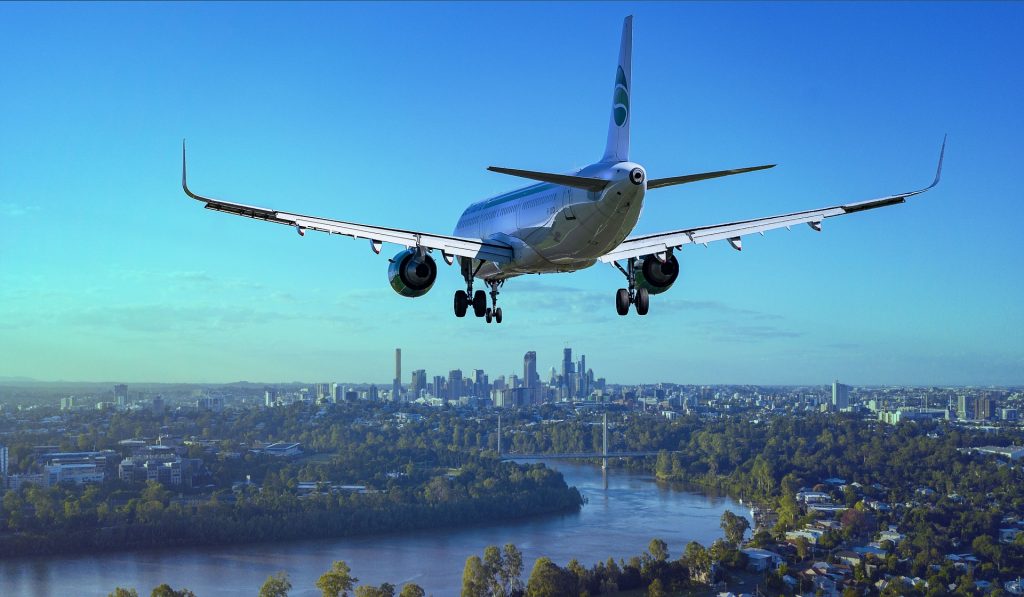Whether it’s for a conference or for a vacation, almost everyone travels. The excitement of going to a new location or leaving home can make us happy for the opportunities to change our scenery. However, because of the many different variables involved with the travel industry, not everything always goes to plan. In the past couple of years, there have been a large number of planes have been grounded in the U.S., or passenger and cargo trains derailing. With these problems, as well as delays due to weather or other issues, the travel industry can easily become unpredictable, and at some points, unreliable. Thankfully, quantum computing has the potential to revolutionize the travel industry in numerous ways, from predicting flight delays and weather patterns to personalized vacation planning.
Flight Optimization
One of the most significant challenges facing the travel industry is the unpredictability of weather patterns and the resulting flight delays. However, quantum computing has the potential to provide highly accurate weather forecasts and flight predictions by processing vast amounts of data from numerous sources, including satellite imagery, weather stations, and flight records. This could help airlines and travel companies make more informed decisions, such as adjusting flight schedules or offering alternate routes, to minimize the impact of weather-related disruptions on passengers.
Recently, QCWare, a quantum computing company, has partnered with the Air Force Research Laboratory (AFRL) to use quantum machine learning to identify flight patterns of unmanned aircraft. “QC Ware values our long-term partnership with AFRL. We believe quantum software is a mission-critical advantage for organizations and nations, and can be useful in the near-term,” said Matt Johnson, CEO, QC Ware in a 2021 press release. “QC Ware’s research leadership in machine learning algorithms supports AFRL’s exploration into how quantum applications can ensure U.S. defense and space organizations maintain their superior edge.”
Others like IBM have also stated that quantum computing could help reduce flight emissions, making the travel industry more environmentally friendly.
Improving Security and Fraud Detection
Quantum computing could also help improve security and fraud detection in the travel industry. By analyzing vast amounts of data on passenger behavior, including everything from booking patterns to social media activity, quantum computers could identify potential threats or anomalies that might indicate fraud or security risks. This could help travel companies and airlines prevent potential threats before they become a problem and improve overall security for passengers. With quantum computing, international fraud and identity theft can be better detected and monitored, deterring others from using this scam and making the travel industry safer for tourists and visitors alike.
A More Personalized Vacation Experience
One of the most exciting possibilities of quantum computing in the travel industry is personalized vacation planning. By analyzing vast amounts of data on consumer preferences, including everything from travel history to social media activity, quantum computers could help travel companies create highly personalized vacation recommendations. For example, a quantum computer could identify a traveler’s preferred travel style, preferred activities, and preferred destinations, and then recommend an itinerary that meets all of those preferences. This could result in more satisfied customers and increased loyalty to travel companies that offer this service.
Making the Trains of the Travel Industry Safer
Quantum computing also has the potential to significantly improve passenger train schedules and reduce derailment by enabling more efficient optimization of train routes and schedules, as well as better predictive maintenance of train components. By using optimization algorithms, quantum computing could minimize travel time and increase the efficiency of train schedules. This could include optimizing the sequencing of trains to reduce conflicts and delays, as well as optimizing the speed and timing of individual trains to minimize energy consumption and travel time.
Another way quantum computing could help is by improving predictive maintenance for train components, such as wheels and axles, which can be subject to wear and tear over time. By analyzing large amounts of data from sensors and other sources, quantum computing could help identify potential problems before they occur, allowing for more proactive maintenance and reducing the risk of derailment.
Thanks to events like the COVID-19 pandemic, the travel industry is changing. Quantum computing companies may be able to take advantage of this transitional shift and begin creating partnerships and collaborations, showing the importance of this technology for the years to come.
Kenna Hughes-Castleberry is a staff writer at Inside Quantum Technology and the Science Communicator at JILA (a partnership between the University of Colorado Boulder and NIST). Her writing beats include deep tech, the metaverse, and quantum technology.
